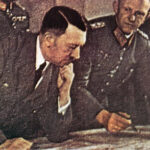Would Germany have won the Battle of the Bulge if they had enough fuel?
Would Germany have won the Battle of the Bulge if they had enough fuel? The Battle of the Bulge, fought from December 16, 1944, to January 25, 1945, was the last major German offensive on the Western Front during World War II. One of the critical factors contributing to the eventual German defeat was their shortage of fuel, particularly for their armored divisions, which were essential to the success of their attack. Had they possessed enough fuel, the outcome might have been different, but several other factors suggest a German victory was still unlikely:
Allied Air Superiority:
Even with sufficient fuel, the Germans would have faced overwhelming Allied air power. Once the weather improved, the Allies were able to launch devastating air attacks on German forces, supply lines, and infrastructure. This would have made sustained German advances difficult, regardless of fuel availability.
Allied Resilience:
Despite being surprised, Allied forces, particularly American units like the 101st Airborne at Bastogne, put up fierce resistance. The Allies were quick to regroup, bringing in reinforcements and closing off German advances, which limited the Germans’ ability to exploit early gains.
Logistics and Supply Issues:
The German offensive was hampered not just by fuel shortages but also by overall logistical challenges. Even if they had enough fuel, their supply lines were overstretched, and they lacked the resources to sustain a prolonged campaign.
Strategic Situation:
By late 1944, Germany was fighting on multiple fronts, with the Soviet Red Army advancing from the east. The overall strategic situation for Germany was deteriorating, and even a successful breakthrough in the Ardennes would have been a temporary setback for the Allies, not a war-changing victory.
In conclusion, while sufficient fuel might have allowed the Germans to advance further and prolong the battle, a complete German victory was improbable given the Allies’ overall superiority in men, materials, and air power, as well as the broader strategic context of the war.


